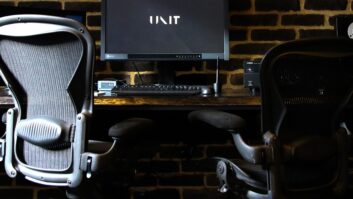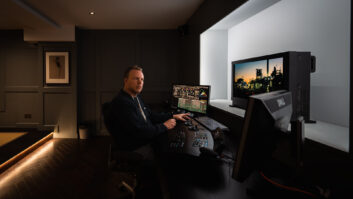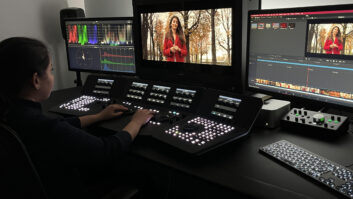New versions of Alan Bennett’s much loved Talking Heads monologues, featuring the likes of Jodie Comer, Sarah Lancashire and Martin Freeman, have recently been transmitted on BBC One and released by the BBC on iPlayer, and have proven to be a huge hit already.
The idea was suggested by the BBC to London Theatre Company director Nicholas Hytner, who wanted to add two never seen before monologues to the series. With the ambition of turning the project around during the Covid-19 lockdown, it went from idea to final DI in just nine weeks.
Shot by DP Zac Nicholson BSC under social distancing conditions, Time Based Art’s Simone Grattarola graded and finished the series using DaVinci Resolve. “There were 12 episodes shot by seven different theatre directors, all of who had differing ideas and views on how they wanted it to look and feel,” he explains “As a result, each episode was very different in the approach we took, which was a lot of fun.
“It was all filmed in a controlled environment at BBC Elstree Studios, and shot beautifully, with five or six shots per take, so it was quite simple to establish the LUT and grade quickly.”
Grattarola adds: “Each episode consisted of five or six scenes and each segment was about five minutes long. It’s an incredible undertaking for the cameraman and for us, and definitely challenged us to find a new way of working.”
“I’m used to shots of around 10 seconds, and the tracking tool usually works well, but when you’ve got a five-minute take, and you’re trying to track things, it can become difficult. I discovered this on the first episode, and as a workaround, I created my own shorter cuts, by breaking them down into 30-second chunks.”
When it came to discussing the grade while in lockdown, the team tried to avoid physical meetings as much as possible. Grattarola explains, “We established a way of hosting client feedback sessions using a Blackmagic Web Presenter and Zoom. We’d determine the initial grade, send it to be viewed overnight and then host a web conference for feedback after which we’d then work on fine tuning the grade.”






